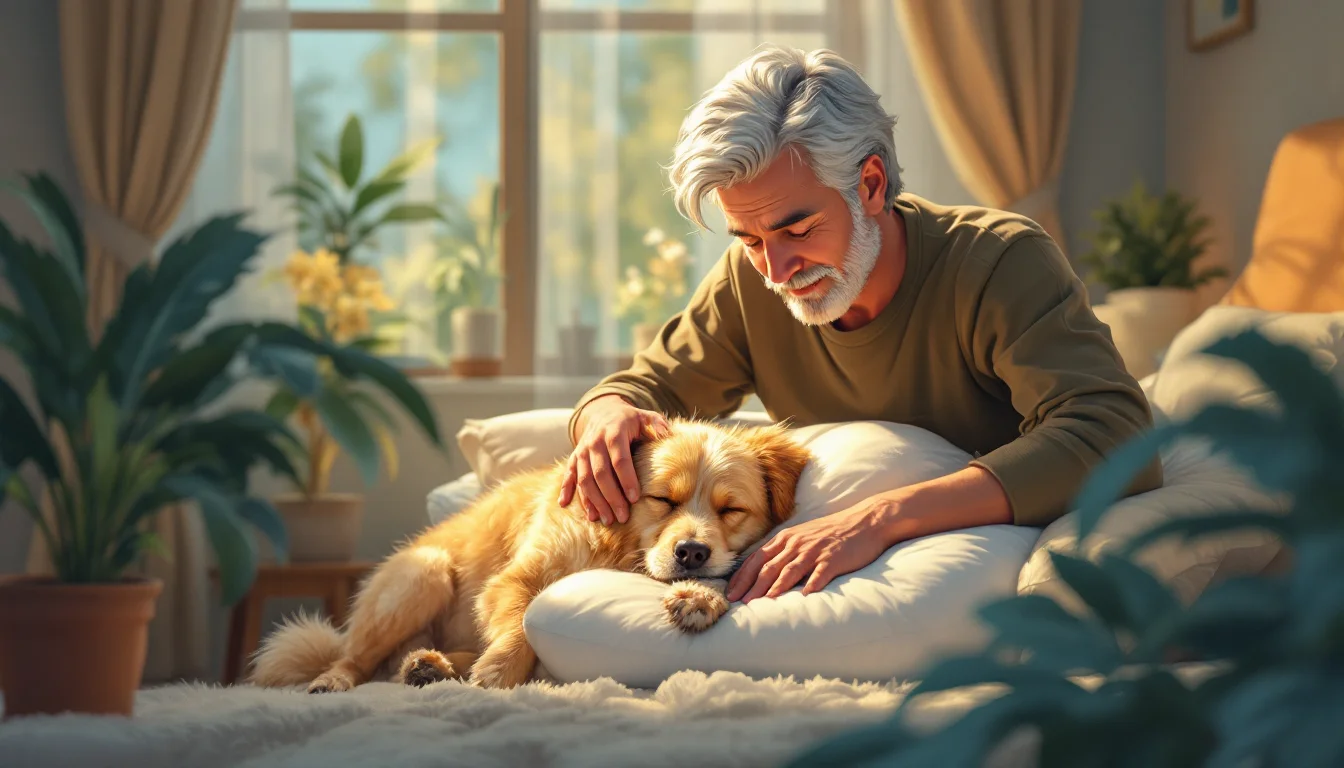Dogs love their naps, and for most, sleeping a lot is completely normal. But as a caring dog parent, it’s natural to wonder—is my dog sleeping too much? When does a good rest turn into a possible sign of an issue?
This article explores how much sleep is normal for dogs, what factors affect their sleep habits, and how to know when you should be concerned. Understanding your dog’s patterns is key to ensuring their health and happiness.
How Much Sleep Do Dogs Really Need?
On average, adult dogs sleep between 12 to 14 hours per day, but this varies depending on several factors:
- Age: Puppies may sleep up to 18–20 hours a day to support growth and development. Senior dogs also tend to sleep more due to lower energy and aging.
- Breed: Larger breeds like Mastiffs or Great Danes often sleep more than smaller breeds.
- Activity level: Highly active dogs sleep more to recover after exercise. Less active or indoor dogs may nap out of boredom.
- Health status: Illness or underlying health issues can increase sleep time or cause fatigue.
- Environment: Dogs in quiet, calm homes may rest more than those in active households.
When Is It Considered “Too Much” Sleep?
While it’s normal for dogs to nap often, certain changes in their sleep behavior may be cause for concern. You should pay attention if your dog:
- Sleeps significantly more than usual
- Struggles to wake up or seems lethargic after resting
- Has low interest in play, food, or interaction
- Sleeps during times when they’re usually active
- Shows signs of confusion or disorientation
A dramatic change in sleep patterns, especially when combined with other symptoms, is a signal that something may be wrong.
Possible Causes of Excessive Sleep in Dogs
If your dog is sleeping more than usual, several factors could be involved:
1. Boredom or Lack of Stimulation
Dogs left alone for long periods or with limited physical or mental activity may nap out of boredom. They aren’t necessarily tired—they’re just unstimulated.
What to do:
- Increase daily walks and play sessions
- Rotate toys and provide puzzle games
- Use scent games to mentally engage your dog
2. Diet or Weight Issues
A poor diet or excess weight can make dogs sluggish and increase their need for rest. Dogs that are overweight often sleep more due to joint discomfort or reduced energy.
What to do:
- Review your dog’s food and treat portions
- Choose high-quality dog food
- Increase exercise gradually
3. Infections or Illness
Conditions like infections, fevers, or organ dysfunction can cause a dog to rest excessively. Often, these are accompanied by other signs such as vomiting, diarrhea, coughing, or weight loss.
What to do:
- Schedule a vet visit for a full health check
- Monitor symptoms and record any changes in behavior
4. Pain or Discomfort
Dogs in pain due to arthritis, injuries, or internal problems may choose to rest more often.
What to do:
- Observe how your dog moves when awake
- Look for limping, stiffness, or reluctance to jump
- Talk to your vet about possible pain management solutions
5. Age-Related Changes
Senior dogs naturally sleep more. However, excessive sleep paired with confusion or pacing could be a sign of cognitive dysfunction syndrome (similar to dementia in humans).
What to do:
- Maintain a consistent routine
- Keep the environment familiar
- Ask your vet about supplements or treatments for cognitive health
6. Medications or Vaccines
If your dog recently received a vaccination or new medication, increased sleep could be a normal side effect. However, it should only last for a short period (usually 24–48 hours).
What to do:
- Monitor for other reactions
- Contact your vet if lethargy persists beyond two days
What You Can Do at Home
You know your dog best. If their extra sleep is sudden, extreme, or comes with other symptoms, it’s best to consult a vet. But in the meantime, here’s what you can do:
- Track their sleep habits for a few days
- Write down any behavioral changes
- Ensure they’re eating, drinking, and going to the bathroom normally
- Provide a comfortable bed in a quiet area
- Keep them mentally and physically stimulated
Sometimes, dogs simply go through slower phases—just like humans. But consistent drowsiness without a clear reason is worth investigating.
When to Call the Vet
Reach out to your veterinarian if your dog is:
- Sleeping more than 16–18 hours a day and not a puppy or senior
- Difficult to wake or keeps falling back asleep
- Showing other symptoms like loss of appetite, vomiting, or weakness
- Displaying a change in personality or awareness
It’s always better to be safe and rule out potential health concerns early.
Final Thoughts: Sleep is Normal—But Be Observant
Sleep is a vital part of a dog’s well-being. But as with any habit, too much of it—especially when combined with other signs—can indicate that something deeper is going on.
If you notice changes, don’t panic. Monitor your dog, stay informed, and trust your instincts. A balanced routine of rest, play, love, and care is the best formula for a healthy, happy pup.

Dedicated to sharing practical tips and accessible guidance on dog care, nutrition, safety, and daily routines for owners of different breeds. With a focus on promoting a safe, healthy, and happy environment for pets, the blog’s content covers breed-specific needs, home adjustments, energy levels, and wellness strategies for all kinds of dogs.
